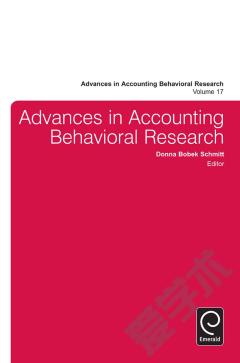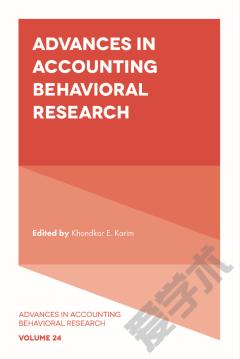Behavioral Accounting
Mainstream accounting research is dogmatizing an image of efficient capital markets in which investors make rational decisions by evaluating all risks and returns of alternatives. In order to make such decisions, investors interpret unbiased information (which is equally available to all market participants) and select the alternative with the highest return or lowest risk. Behavioral accounting is challenging such simplistic assumptions. It is concerned with the explanation and prediction of human behavior in an accounting context such as the usefulness of financial statement data, materiality judgments, decision effects of alternative accounting procedures, and the impact of culture and language on the interpretation and application of accounting pronouncements. This book gives insights into the newest developments in behavioral accounting, and provides evidence that behavioral aspects cannot be ignored in the interpretation and application of accounting information.
{{comment.content}}








 京公网安备 11010802027623号
京公网安备 11010802027623号